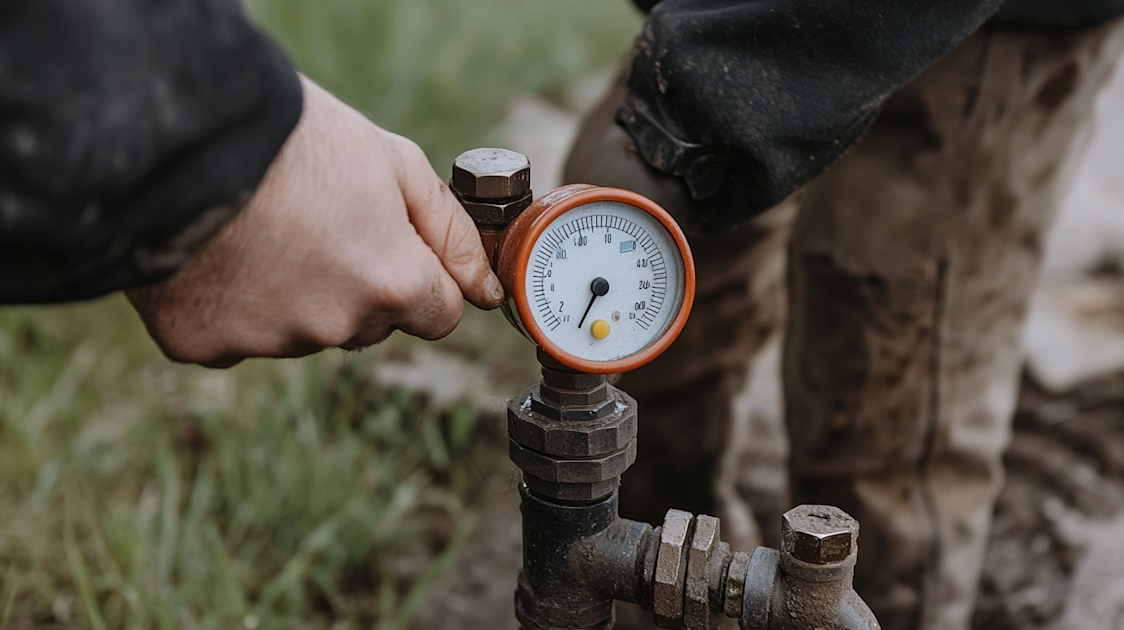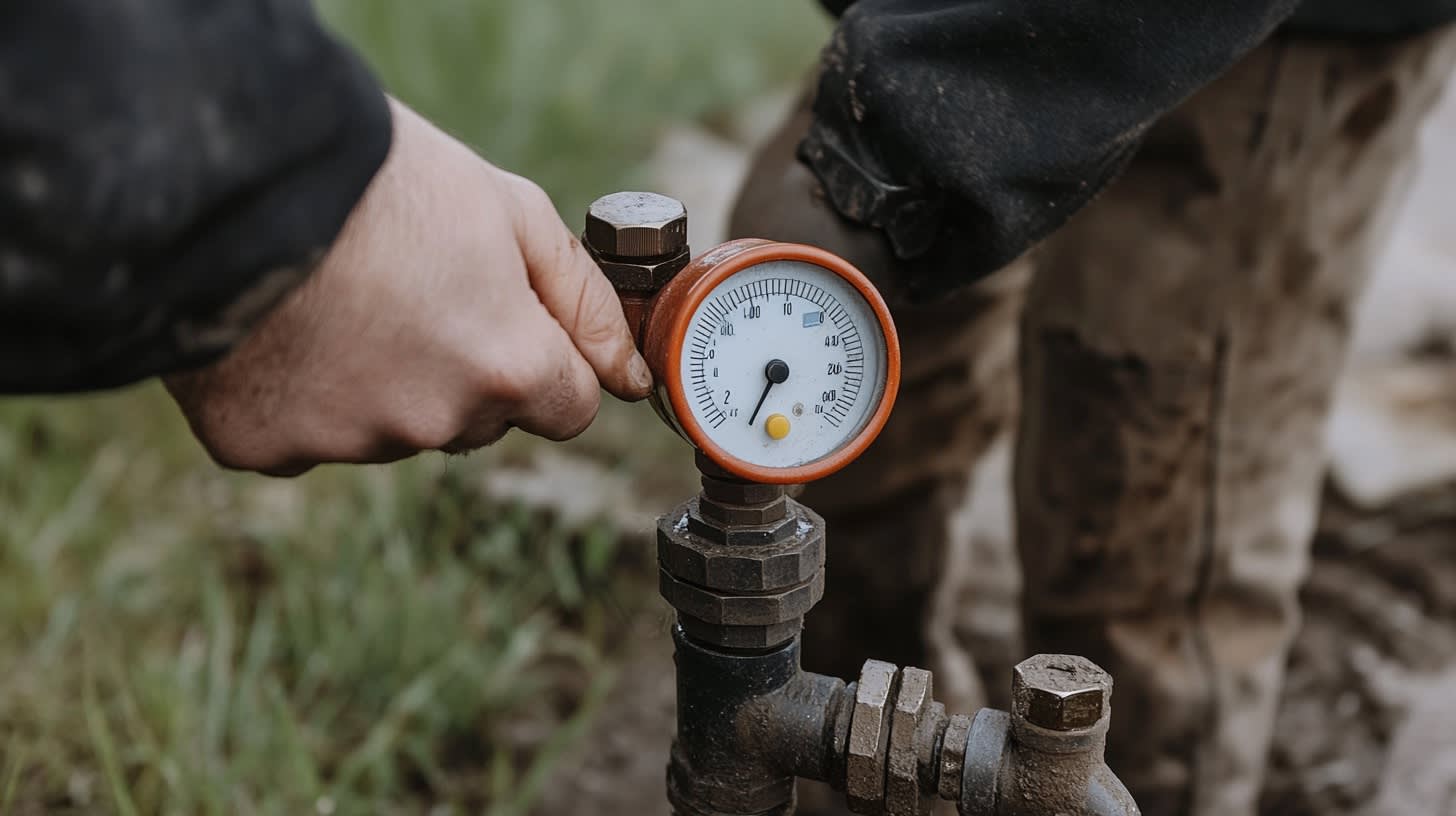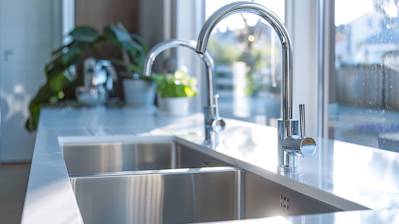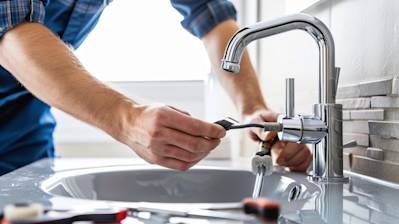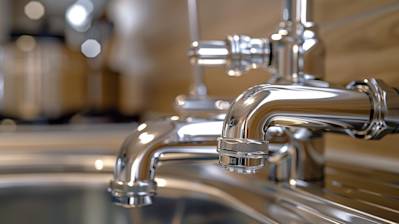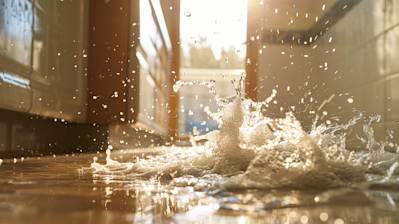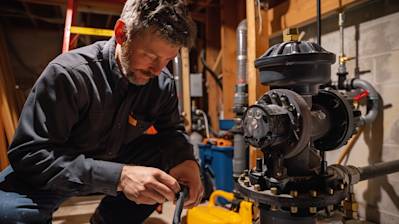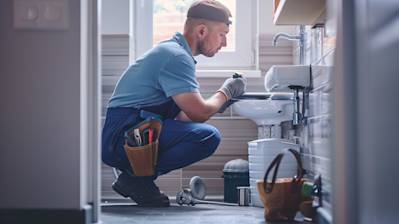Water Pressure Gauges play a crucial role in monitoring and maintaining the water pressure in your pipes. In this comprehensive guide, we will delve deep into the world of Water Pressure Gauges, helping you understand how they work, why they’re important, and how to select the perfect one for your needs.
Role of Water Pressure Gauges in Plumbing Systems
Water pressure gauges play a crucial role in ensuring the functionality and efficiency of your plumbing systems. They measure the force exerted by water in pipes, helping you gauge whether the water pressure is within a suitable range. Too high or too low water pressure can lead to various plumbing issues.
Main points to consider:
- The primary function of water pressure gauges
- High vs low water pressure consequences
- Importance of maintaining optimum water pressure
How Does a Water Pressure Gauge Work?
A water pressure gauge uses a spring-loaded mechanism to measure the amount of force exerted by the water in the pipe. When water presses against the spring, it compresses, and the amount of compression is then translated into numbers on the gauge dial. This displays the pressure of the water.
Features of water pressure gauges:
- Spring mechanism
- Gauge dial
- Reading pressure
Understanding Water Pressure Ratings
The reading on a water pressure gauge is usually presented in pounds per square inch (PSI). Average home water pressure generally falls between 30 and 80 PSI. If your pressure gauge consistently reads below 30 PSI or above 80 PSI, you may need to address your home's water pressure issues.
Key points:
- PSI readability
- Average home water pressure
- Indications of water pressure issues
Water Pressure Gauge Varieties
There are different types of water pressure gauges, and they are differentiated by their design, measurable pressure range, and specific use case.
- Standard Gauges: They are the most common type of water pressure gauges used in homes, and they generally have a measureable range from 0 to 200 PSI.
- Digital Gauges: These gauges offer a more precise and higher resolution reading. They’re ideal for scenarios where accuracy is paramount.
- Differential Gauges: These gauges measure the differential pressure between two points in a system. They’re typically used in industrial settings.
How to Use a Water Pressure Gauge
Using a water pressure gauge is relatively simple:
- Attach the pressure gauge to your water outlet: A typical pressure gauge has a thread that can be attached to any hose bib or faucet.
- Turn on the water: Open the valve slowly and allow the system to reach operating pressure.
- Read the gauge: Once the needle on the gauge stabilizes, note down the water pressure.
Factors to Consider When Buying a Water Pressure Gauge
When shopping for a water pressure gauge, you should consider a few key factors:
- Range: Choose a gauge with a range that exceeds your expected system pressure. This is to minimize damage from pressure spikes.
- Accuracy: If precision is key, choose a gauge with a higher rate of accuracy.
- Durability and Construction: Consider gauges that are corrosion-resistant and built to withstand temperature changes and humidity.
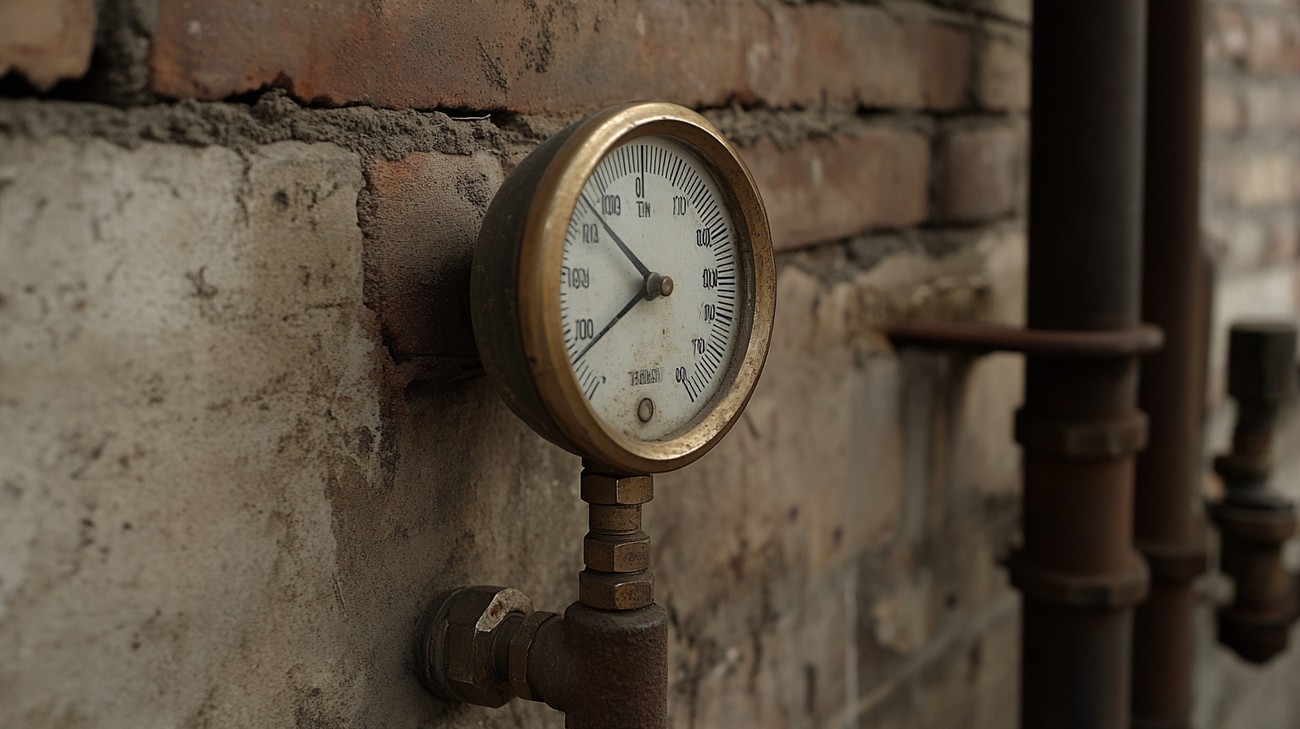
Frequently Asked Questions about Water Pressure Gauge
How Accurate are Water Pressure Gauges?
The accuracy of water pressure gauges depends on several factors such as the quality of the device, its size, and the pressure range it can measure. High-quality water pressure gauges are generally highly accurate. The accuracy is often determined as a percentage of the full-scale reading. So, for a gauge with an accuracy of ±1%, the maximum error will be 1% of the highest value it can measure.
How Do I Read A Water Pressure Gauge?
Reading a water pressure gauge is relatively straightforward. The gauge will typically have a dial with numbers, and a needle pointing towards the pressure level. The numbers on the dial indicate the pressure in 'pounds per square inch' (PSI). If the needle points towards 20 PSI, for instance, that’s the water pressure at your location.
How to Install a Water Pressure Gauge?
Installing a water pressure gauge involves a few steps. First, turn off the water supply in your home or building. Locate a pressure test port, which is a thread-outlet situated on your water pump or main water pipe. Connect your pressure gauge to this outlet. You can use plumber's tape around the threading to ensure a good seal. Once installed, turn the water back on and monitor the reading on the gauge.
How to Maintain a Water Pressure Gauge?
Proper maintenance is essential for ensuring the prolonged service life of the water pressure gauge. Keep the gauge's measuring system dry and clean. If it is used to measure corrosive media, flush it periodically. Avoid severe vibration and high impact. If you notice the gauge reading is unstable or has a large error, it is time to replace or repair it.
Can a Water Pressure Gauge Measure Other Liquids?
While water pressure gauges are predominately used for measuring water pressure, many can also gauge the pressure of other compatible non-corrosive liquids. This depends, however, on the construction and durability of the specific pressure gauge. Always refer to the manufacturer's manual to confirm what kind of liquids the device can handle.
When Should I Replace My Water Pressure Gauge?
When a water pressure gauge begins to give inconsistent readings, sticks, or overall doesn’t function correctly even after maintenance and calibration checks, it's usually time to replace it. Continued use of a defective pressure gauge might lead to inaccurate pressure readings, which can result in considerable damage to your piping system.
Where Can I Purchase a Water Pressure Gauge?
Water pressure gauges can be purchased from numerous sources. These include hardware stores, specialized plumbing stores, and various online retailers. Before making a purchase, it’s always a good idea to engage in some comparison shopping to ensure you’re getting the best deal and product for your specific needs.
What are Different Types of Water Pressure Gauges?
There are different types of water pressure gauges that are used for various purposes. Some of the popular types include sealed gauges, absolute pressure gauges, vacuum pressure gauges, and digital pressure gauges. The type you need depends on the specific application for which it will be used. For example, digital pressure gauges offer high accuracy and are ideal for precision tasks.
How to Calibrate a Water Pressure Gauge?
Calibration of a water pressure gauge is crucial to ensure it provides accurate readings. This process should ideally be carried out by a professional or under professional guidance. The basic process involves comparing the readings of the gauge with those of a 'master' or 'standard' pressure gauge, and then adjusting the pressure gauge in question to match the readings of the standard.

Pros of a Water Pressure Gauge
Quick Detection of Plumbing Issues
A water pressure gauge allows quick detection of plumbing issues. It aids in spotting pressure drops, which could be an indication of a leak or a clog in your piping system. So, the easy and immediate identification of these problems helps cut down on more costly repairs down the line.
Cost-Effective
Water pressure gauges are quite cost-effective, especially when you factor in the potential cost of unattended water pressure issues. Such problems could result in higher water bills or costly water damages. Having a gauge can help in understanding and controlling water usage relating to pressure, thus saving costs in the long run.
Easy to Use
Most water pressure gauges are user-friendly and simple in their design and operation. You only need to attach the device to a hose or faucet and check the readings. They don't require any special skills or lots of experience to utilize efficiently.
Allows for Regular Maintenance
Having a water pressure gauge means you can consistently monitor and maintain your plumbing system's health. Regular checks can go a long way in preventing potential problems, ensuring a consistent and uninterrupted water supply.
Durability
Many of the water pressure gauges available in the market today are quite durable. They are designed to withstand different water pressures and temperatures, and they can last for a long time with minimal maintenance, proving to be a good investment for homeowners.
Cons of a Water Pressure Gauge
Not Always 100% Accurate
One of the main cons of a water pressure gauge is that it might not always provide 100% accurate readings. Factors such as the system's water temperature, the age and condition of the gauge, and the quality of the gauge itself can affect its accuracy. Therefore, to completely rely on the device, one should consider periodic calibration.
Temperature Restrictions
Most water pressure gauges aren't designed to withstand extremely high temperatures. Exposing the gauge to high-temperature water might cause it to break or provide inaccurate readings, limiting its usability in certain scenarios.
Compatibility Issues
Some water pressure gauges may be incompatible with certain types of plumbing systems or fixtures. This requires users to be cautious when purchasing a gauge to ensure it matches their system's specifications.
Expertise Required for Installation
Even though many water pressure gauges are simple to use once installed, the installation process itself might require some degree of expertise. You might need to hire a professional plumber for the installation, especially if you're not handy or familiar with plumbing systems.
Requires Regular Maintenance
While regular maintenance can be seen as a pro since it helps avoid bigger issues, it can also be a con. Over time, water pressure gauges can begin to wear down or become less accurate, requiring periodic checks, calibrations, or replacements, which can be inconvenient and a bit costly for some individuals.

Myths and Misconceptions About the Water Pressure Gauge
Water pressure gauges play a crucial role in our lives. We use them at home to monitor the water pressure in our plumbing systems and in industrial sectors for various purposes. Despite their widespread usage, various myths and misconceptions persist about these devices. In this section, we will untangle these misconceptions.
Myth 1: All Water Pressure Gauges Are the Same
Misconception
This is a common belief amongst many who lack in-depth knowledge about water pressure gauges. They assume that all water pressure gauges operate similarly and give the same results.
Reality
The truth is, water pressure gauges vary in their specifications, ranging from their dial size to the pressure range they can handle. Some gauges are built specifically for high pressures, while others are best used for lower pressures. Additionally, gauges vary in the level of accuracy they can provide, with some offering precision within a very small range, while others being less accurate but more affordable.
Myth 2: All Gauges Can Handle Extreme Temperatures
Misconception
Another widespread myth is that these gauges can operate effectively under any temperature condition. After all, they are meant to be durable, right?
Reality
While water pressure gauges are certainly built to be robust, not all of them can withstand extreme temperatures. Most gauges undergo testing in controlled environments, and their functionality may be affected by either very high or very low temperatures. Before purchasing a gauge, it's critical to understand its effective operating temperature range.
Myth 3: If a Gauge is Not Working, You Just Need to Replace It
Misconception
A faulty gauge means it is time to get a new one. That’s the prevalent thinking.
Reality
That's not always the case. Sometimes, a faulty reading could simply be due to a buildup of debris or an obstruction in the pipe that's affecting water flow. Other times, the problem may be the gauge's age or exposure to harsh conditions. Before deciding to replace a gauge, it's important to correctly diagnose the problem, as the issue may not be with the gauge itself.
Myth 4: Water Pressure Gauges Do Not Require Regular Maintenance
Misconception
Since these devices are quite sturdy and manufactured to last, they do not require maintenance.
Reality
Water pressure gauges, like any other mechanical device, need to be maintained regularly. Regular servicing can clear out any debris or sediments and ensure that the gauges work consistently and accurately over time. Maintenance plays a major role in elongating their lifespan and ensuring reliable readings.
Myth 5: It's Fine to Overrange a Gauge to Get More Pressure
Misconception
If you want to increase your pressure, just overrange your gauge – a common thought process, particularly among those who need high pressure levels.
Reality
Overranging can damage the internal mechanics of the device and lead to inaccurate readings. Gauges are designed to handle specific pressure ranges and regularly pushing beyond the upper limit can cause harm to your gauge. Always ensure your gauge is suitable for the pressure level you require.
While we have demystified a few misconceptions about water pressure gauges, it's vital to remember that understanding these devices' specifics can greatly enhance their functionality and lifespan. A well-informed approach can save time, money and prevent unnecessary headaches.
Summary
So, after all that, it's clear that a water pressure gauge is one tool you definitely don't want to overlook. These handy little devices really do make a big difference in managing water systems, residential or commercial. They help to monitor and maintain the right water pressure levels and prevent any potential damage that might result from surges.
What’s more, a water pressure gauge isn't overly complicated to use. With a little bit of know-how, anyone can learn to read and interpret the results. It's as simple as checking the needle on the dial and comparing the reading to the standard pressure range. Remember, an abnormally high or low pressure could signify an issue that needs to be addressed.
So, in the grand scheme of home or business maintenance, having a water pressure gauge easily accessible can save a lot of headache and money down the line. It's a small tool but has a significant role in the preventative care of water systems. Unique situations may arise, but as long as you've got one of these handy, you've got one less thing to worry about.
About KYPD Plumbing
KYPD Plumbing is an established plumbing company that's been proudly serving the local community of Lexington, KY for years. Rooted in unwavering commitment to exceptional customer service and top-notch workmanship, we specialize in both residential and commercial plumbing projects. Whether you're troubled by a minor leak in your kitchen or planning a complete bathroom renovation, our experienced team is fully equipped and dedicated to handle any job with utmost precision and efficiency. We're not just plumbers; we're helping the people of Lexington keep their water flowing securely!
Tags: measuring equipment, plumbing tool, pressure measurement,

